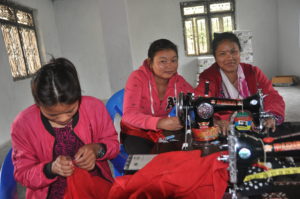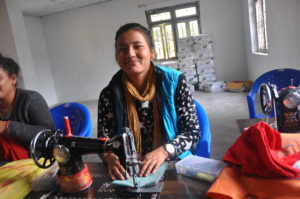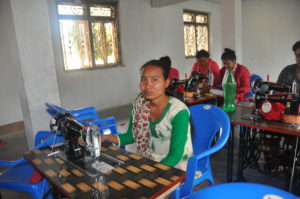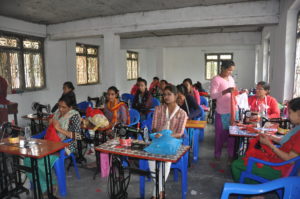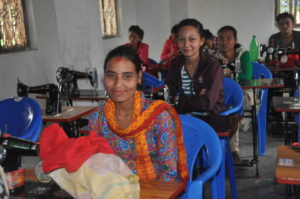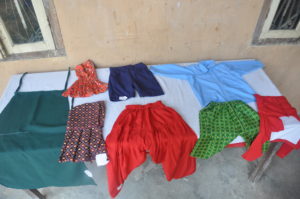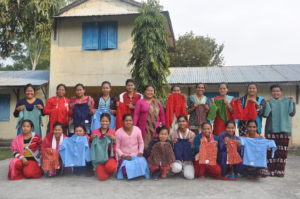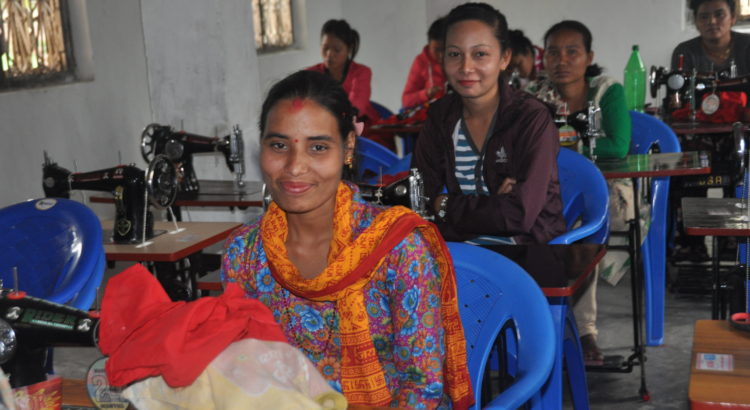Introduction
Especially in rural area’s, young woman are often poor and have no chances. In most cases, the parents arrange their marriages, with, according to Nepali tradition, the young women moving in with their new parents-in-law. This is one of the most important reasons that, in Nepal, there is no money for a girl’s education. In most cases, poor families don’t have enough money to pay for a good education for their children anyway. If they would become certified seamstresses, young women would be enabled to generate their own income, thus becoming full participants in society. Girls from the Kumari School, 16-year-old or older, are also qualified to participate in this training program.
Girls and women living in poverty in the surrounding villages could apply for the training, while the organisers were making the sewing machines ready for use, and purchasing materials and tailoring necessities, including scissors and measuring tapes. The interest was huge. The selection committee needed two days to determine who would be eligible for the course. Of the more than one hundred applicants, 60 girls and woman are selected. The first 30 women graduated in April 2018. It is unfortunate that illiterate women are not eligible to participate in the program, since because of their illiteracy, they cannot do the reading nor do the arithmetic required in this program. Women and girls participating in this program are from poor families, but have been to school for 1 to 5 years. Besides participating in the course and being able to earn an income in the future, they are obtaining a better status as well. That way they will not be held back as much in society.
The prize for the highest scores in the course is a sewing machine.
Target groups:
a) 16 year-old or older Kumari School Graduates
b) Forgotten young women living in poverty in rural area’s
The Tailoring Education Course
The Government (CTEVT: Council for Technical Education and Vocational Training) officially recognises the Tailoring Education Course. The course takes 6 months. An advanced training program will take 6 more months as well. Tuition fees are € 267,- per student.
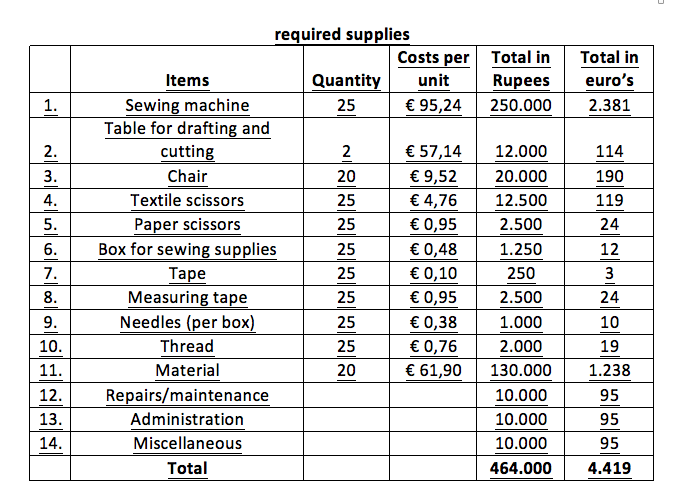
Purnakala: “I am 29 years old. When I was pregnant of my second child, my husband disappeared, leaving me to take care of things myself. I take care of things around the house while I get some income from working in other people’s fields. In Nepal, a woman’s life is hard, because people around here don’t pay much attention to a woman’s plight. A woman’s life is hard to begin with, but when her husband leaves her, she will be at an even greater disadvantage. I am so pleased and grateful for this training, as it will be advancing me to a different level. Through this type of education, women are enabled to use their own strengths.
On behalf of all disadvantaged women having a hard time, I am very grateful to the donors for their help.”
Sita: “I am 26 years old and I share one house with 8 family members. My husband is very sick with tuberculosis. Because I am working in the fields to have some income, but I have to take care of my husband and of all the family members. My brother is a guest labourer in India, and is thus contributing to the family income. Women in Nepal are living in deplorable conditions. It is better than in the old days, but the men are still oppressing us, being in contro, and setting all the rules. I am so happy that I can take this course. I could never have paid for it myself. Once I graduate I will be able to make money myself. I’ll be independent. I don’t know how to thank the people who gave me this opportunity. Thank you very much!”
Tam Maya: “I am 21 years old. Because of my arranged marriage, I had to stop my education while I was still in elementary school, My husband left me for an Arabic Country to work as a guest labourer. I am now taking care of 7 family members. To feed our family, some of the family members work as farm hands for rich people. Because of the way our society is structured, not taking women into account, we have no chances. We have not been able to complete our education. Because of this Foundation’s help, bypassing the conservative Nepali customs, we now are getting a chance. I am very grateful to this Foundation as it is fighting for the poor and standing up for women.”
